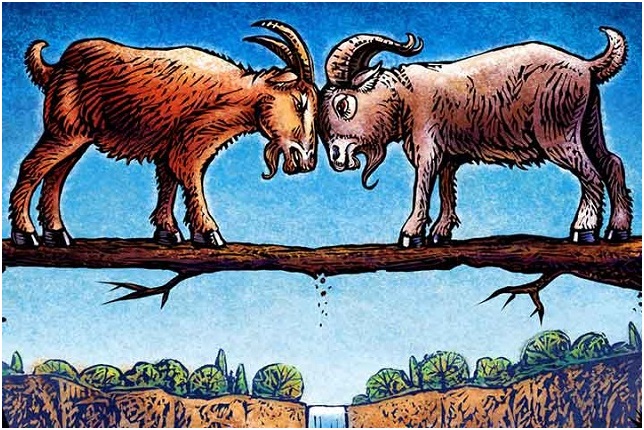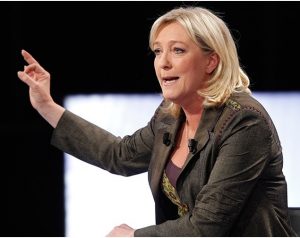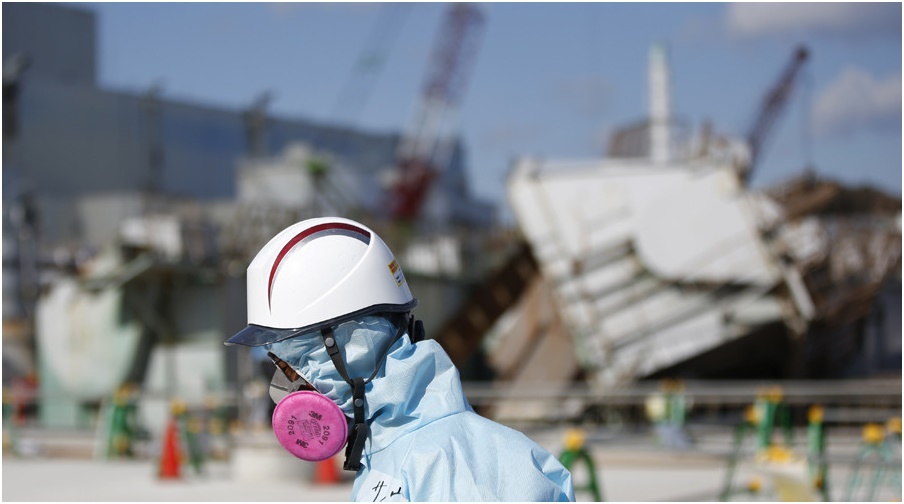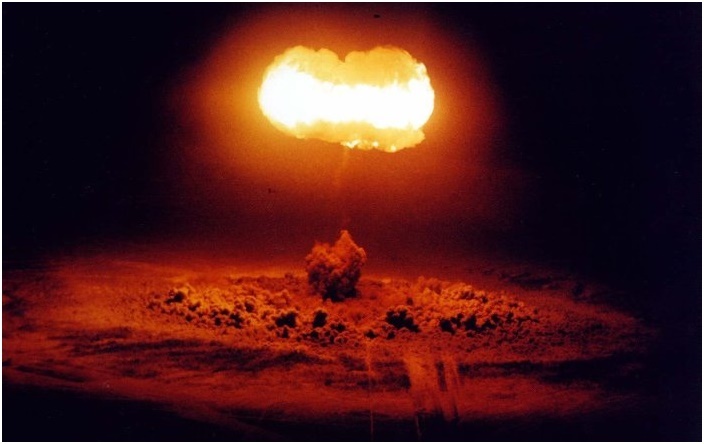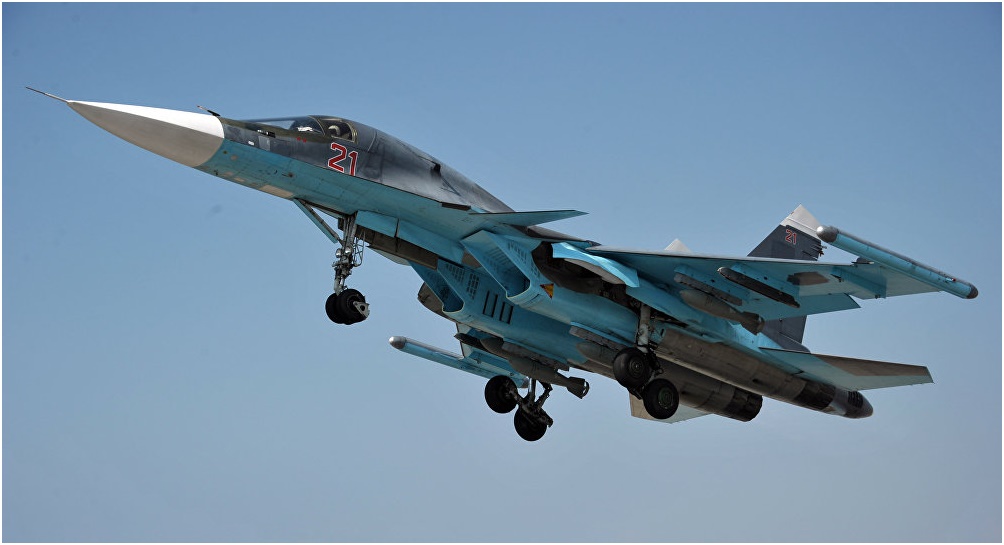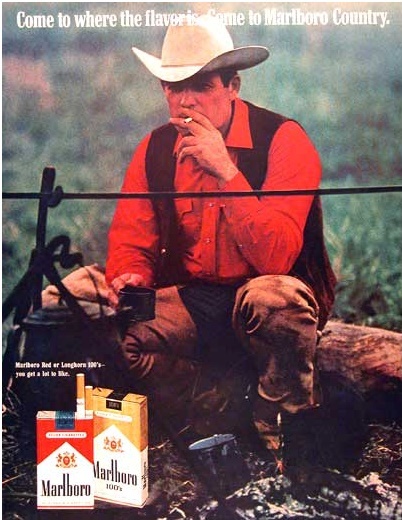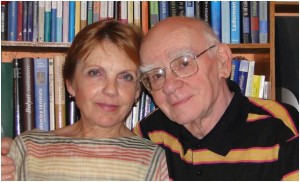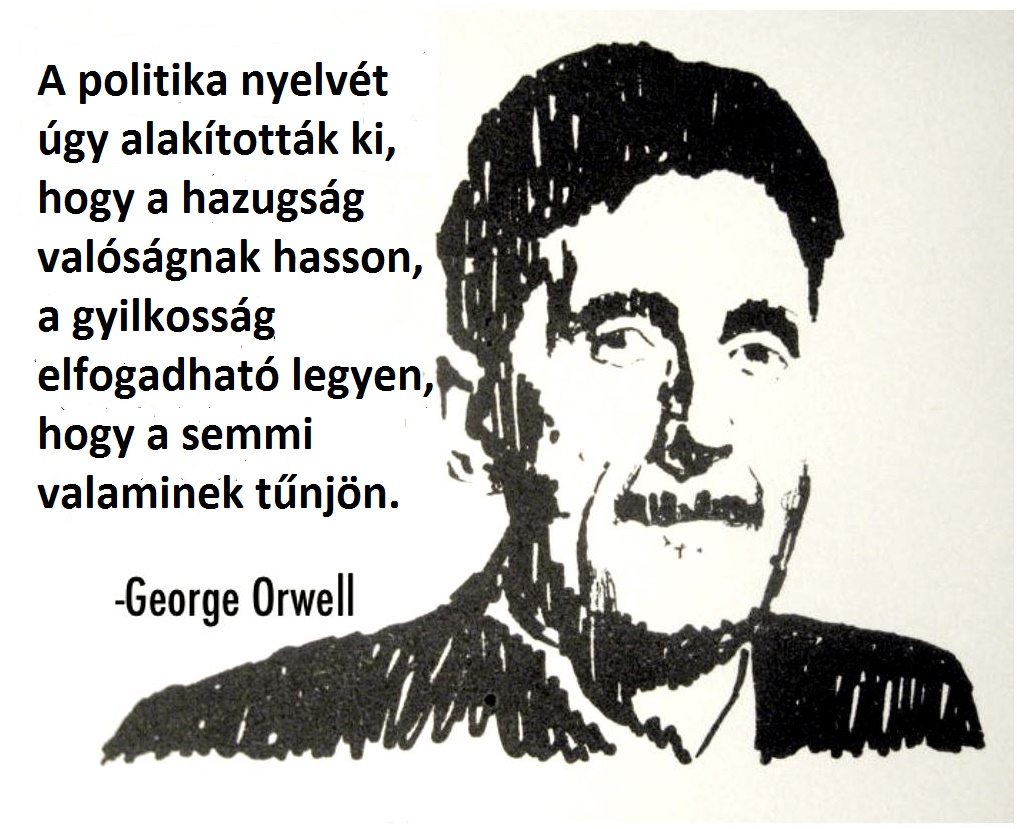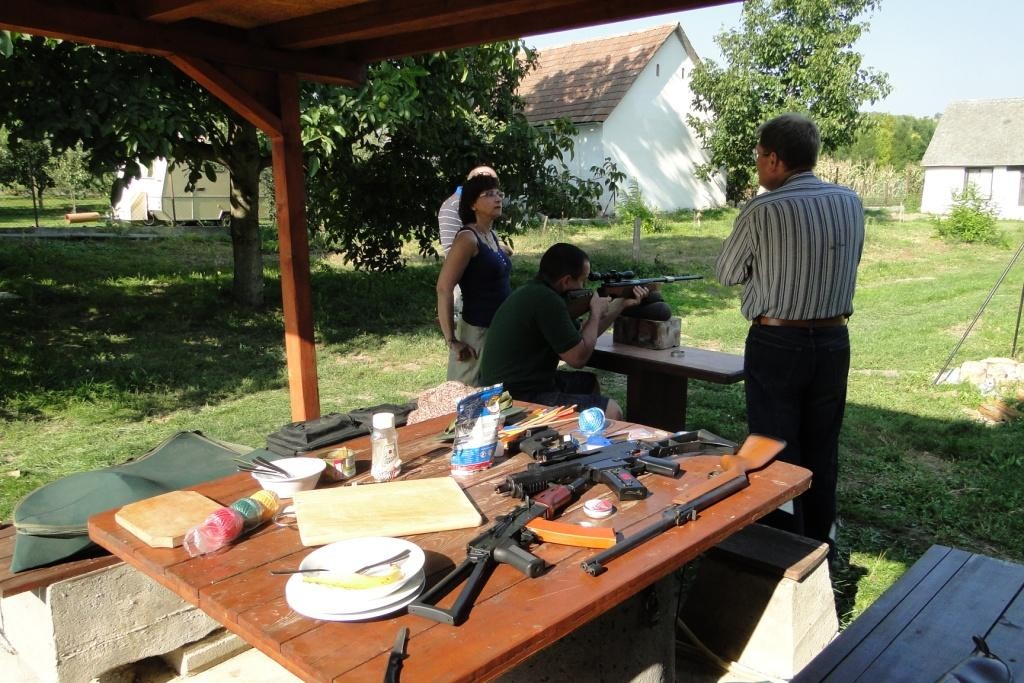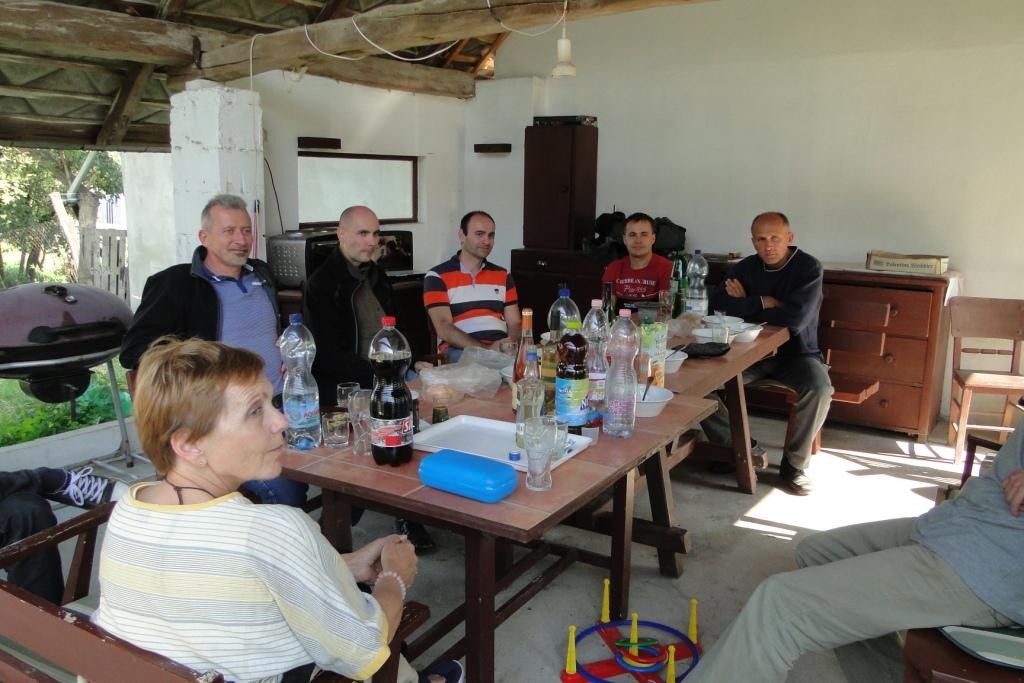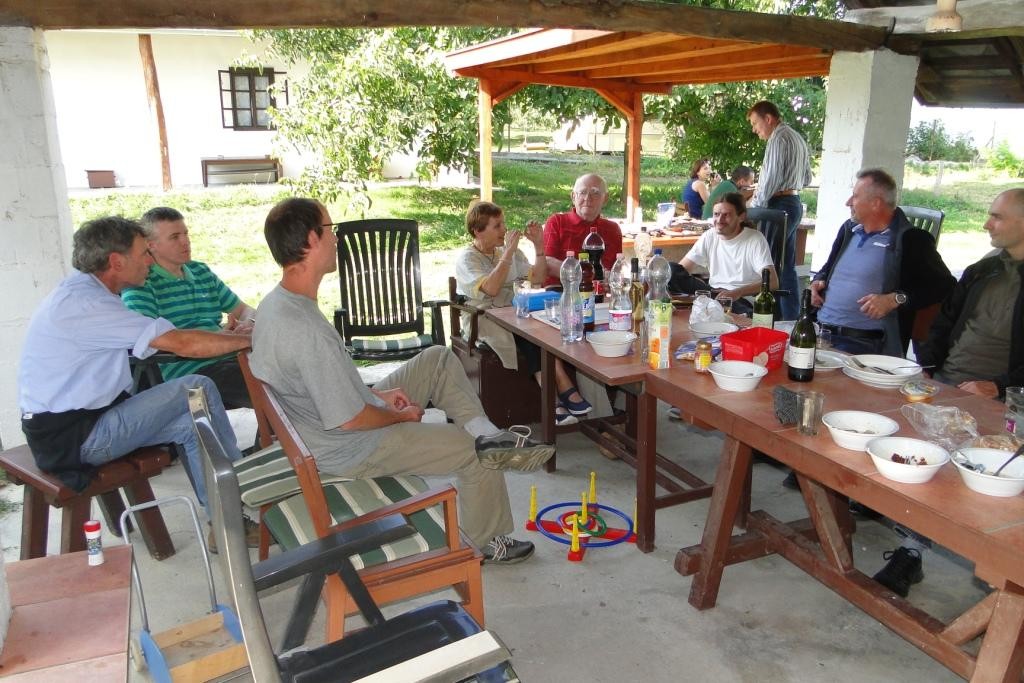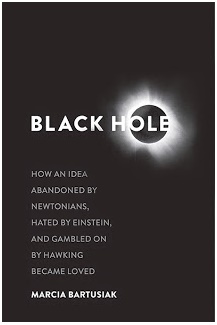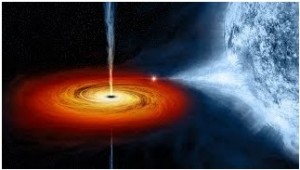VIP.135.
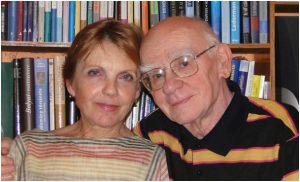 Tibor bá’ megjegyzése: A kérdésre a rövid válasz, hogy nem előbb, mint 2017. január, mert az újonnan megválasztott amerikai elnök akkor veszi át a hatalmat.
Tibor bá’ megjegyzése: A kérdésre a rövid válasz, hogy nem előbb, mint 2017. január, mert az újonnan megválasztott amerikai elnök akkor veszi át a hatalmat.
Szerzők: (Aktív doktorok a békemozgalomért) Leif Elinder, Anders Romelsjö és Martin Gelin – A poszt először megjelent a svéd Göteborgsposten-ben a következő cím alatt: „Vi måste fjärma oss från Nato om vi vill slippa krig”. Angolra fordította Siv O’Neall. Közzétéve 2016. augusztus 12.
Egy nukleáris háború veszélye sose volt nagyobb, mint most, részben azért, mert a NATO az Oroszország határai mentén lévő európai országokba rakétabázisokat telepit. Amennyiben Putyin eldönti, hogy visszavág, ezek az országok célponttá válnak…….
……Független amerikai biztonság-politikai kiértékelők, mint például a VIPS (Veteran Intelligence Professionals for Sanity = az ésszerűségért küzdő veterán titkosszolgálati szakemberek szövetsége) úgy véli, hogy közvetlenül az orosz határ mellett végrehajtott NATO hadgyakorlatok rendkívüli mértékben provokatív jellegűek és nagyon veszélyesek. Egyre több európai politikus nyilvánosan határolja el magát a NATO agresszív politikájától – például Tsipras, görög miniszterelnök, Frank-Walter Steinmeier, német külügyminiszter, francia köztársasági elnök,Francois Hollande……
…… Ha a nyugati politikusok nem tesznek különbséget ok és okozat, provokáció és reakció között, akkor a következmények megsemmisítőek lehetnek. Oroszország most három dolog között választhat a NATO-val kapcsolatban:
- Megadja magát és elfogadja, hogy Amerika vazallusa lesz.
- Megvárja, hogy a NATO mérje rá az első és megsemmisítő első csapást, amire nem fog tudni kellően reagálni.
- Mérje az első csapást taktikai nukleáris töltetekkel azokra az európai bázisokra, amelyek közvetlen veszélyt jelentenek rá, feltételezve, hogy Amerika nem üt vissza, amivel kiváltana egy saját területét érintő visszavágást. (Donald Trump már bejelentette, hogy Amerika nem fog minden körülmények között katonai ellencsapáshoz nyúlni csak azért, hogy megvédje NATO szövetségeseit.)
Putyin elnök már jelezte, hogy jelenleg Oroszország a harmadik lehetőséget fontolgatja. Az egyetlen kérdés az, hogy mikor? Különben, bármelyiket választja a vesztes Európa lesz.
Tibor bá’: A helyzet kísértetiesen hasonlít a „két kecske a hídon” népmeséhez. Egyik se enged, mind a kettő a vízbe fog esni. Amerika nem hajlandó elfogadni, hogy a „kivételezett” (exceptional nation) koncepció előtt valaki nem hajlik meg. Oroszország nem hajlandó vazallus országgá válni. Személy szerint én nem látok kiutat. Remélhetően a magyar kormány nem enged Magyarországra telepíteni NATO erőket.
_________________________________________________________
A teljes fordítást elküldöm a VIP előfizetőknek. Kapcsolat felvétel: evatibor#t-online.hu
________________________________________________________________
We Need To Distance Ourselves From NATO If We Want To Avoid War
By Leif Elinder, Anders Romelsjö and Martin Gelin
First posted in Göteborgsposten in Swedish, translated by Siv O’Neall. – Title in Swedish: „Vi måste fjärma oss från Nato om vi vill slippa krig”
August 20, 2013 „Information Clearing House” – The risk of nuclear war has never been greater and it is partly because of NATO rearmament of European countries bordering on Russia. However, these countries will also be targeted if Putin decides to strike back. Thus write three Swedish doctors in an article in Göteborgsposten on Friday August 12.
During the Cuban missile crisis, President Kennedy discussed with his advisors the various options available. One involved a limited attack on Soviet missile bases. Moscow was supposed to accept such a response rather than fight back in a way that would result in the devastation of both the U.S. and the Soviet Union.
During the years from 1950 into the 1980s there was a doctrine of military strategy and national security policy known as MAD (mutual assured destruction). MAD means that if a great power attacks first, it will always be possible for the attacked nation to retaliate. The ability to strike back served as a sufficient deterrent.
The relative security that the MAD doctrine created no longer exists. The U.S. and Russia now mutually accuse each other openly of constituting an „existential threat”. The military-strategic balance is becoming increasingly uneven.
The U.S. nuclear rearmament and NATO’s encirclement of Russia have created a highly insecure and dangerous world situation. The advantages of having the „first strike” becomes harder to resist. With the support of NATO, Romania and Poland are now installing a new American „defense” robot system called „Aegis Ashore”. President Putin has warned the two countries that in case of a military conflict, they will now become the primary objectives. Russia’s concern for a disarming first attack appears to be genuine. Whether the concern is well-founded, we can not know. What is crucial to our security are the actual thoughts and plans of each superpower.
The risk has never been greater
Former US Defense Secretary William Perry has warned that the risk of a nuclear war is now greater than ever. The reasons are, among other things, the following:
- The breaking of the agreement after the dissolution of the Soviet Union (1990) not to expand NATO. The number of NATO nations has since increased from 13 to 28.
- NATO’s illegal intervention in Yugoslavia (1999) with the separation of Kosovo.
- The termination of the ABM Treaty (Anti-Ballistic Missile Treaty) in 2001.
- The establishment of anti-missile bases in Romania and Poland (see above) – bases that can easily be reprogrammed to serve for attack robots.
- The upgrading of the US nuclear weapons system at a cost of a trillion (12 zeros) dollars.
- The illegal US-backed coup (2014) in Ukraine.
- NATO strategic military superiority in terms of ability to strike first.
- The demonization of Putin, including comparisons to Hitler. (A „Hitler” is not someone you can negotiate with – but someone who has to be eliminated).
Independent American security analysts such as VIPS (Veteran Intelligence Professionals for Sanity) consider NATO war games in Russia’s neighborhood as extremely provocative and dangerous. More and more European politicians are publicly distancing themselves from NATO’s aggressive policies – such as the Greek Prime Minister Tsipras, the German Foreign Minister Frank-Walter Steinmeier and French President François Hollande.
NATO is strong globally. Compared to Russia, NATO spends ten times more money on weapons. Many countries assume that becoming a member of NATO provides protection. But when there is an asymmetric military balance, the logical consequence will be the opposite. Should US/NATO strike from bases bordering on Russia, the Russian military leaders will not have time to react.
Russia has made it clear that such a situation will not be tolerated. Therefore, Russia currently applies a nuclear doctrine that allows for a nuclear strike with restrictions („The Concept of De-escalation”). The intention of this doctrine is that with a limited first attack, the strike will make continued warfare less likely. By not fighting back, the U.S. will avoid the risk of an extension of the conflict to its own territory. Would an American president be willing to devastate his own country in order to retaliate against a Russian strike on bases in Europe?
The military-strategic situation is thus extremely unstable. Countries bordering on Russia that have allowed the installation of NATO bases are at an increasingly greater risk of becoming prime objectives. The outcome of the US presidential election brings no relief – whatever will be the outcome.
When Western politicians do not distinguish between „cause and effect”, provocation and reaction, the consequences can be devastating. Russia now faces three choices, in terms of dealing with NATO:
- Giving up, and accepting the role of an American vassal
- Waiting for NATO to strike first and thus be neutralized
- Strike first with tactical nuclear weapons against European missile bases which constitute a direct threat and expect the U.S. not to retaliate, risking a counter-attack on its own territory. (Donald Trump has already implied that the United States will not unconditionally retaliate militarily to protect its NATO allies.)
President Putin has indicated that it is the third military scenario that Russia is now considering. The only question is when. The loser, in whichever case, will be Europe.
Sweden’s rapprochement to NATO has increased the risk of our country being drawn into a war. Therefore, it is particularly important to Sweden and other European countries to support all initiatives aimed at détente and disarmament – and thus create a public opinion that will distance us from NATO.
Doctors active in the peace movement – Leif Elinder, Anders Romelsjö, Martin Gelin
________________________________________________________________
________________________________________________________________
________________________________________________________________
